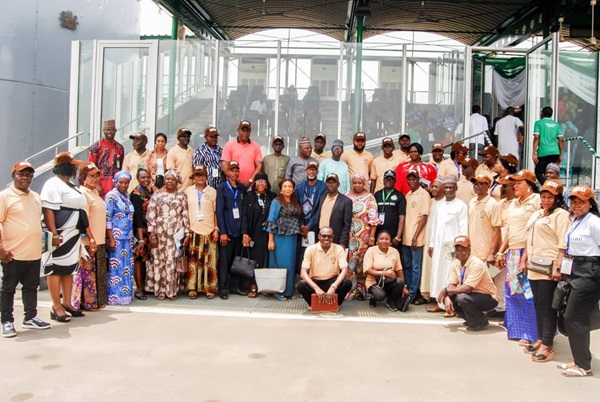
The Nigerian Institute of Leather and Science Technology (NILEST) has unveiled the vast potential of Nigeria’s leather industry, estimating its capacity to contribute over $17.5 billion annually to the nation’s gross domestic product (GDP) with adequate government support.
The director-general of NILEST, Prof. Mohammed Yakubu disclosed this during the institute’s day at the recently concluded Science and Innovation Expo organized by the Federal Ministry of Innovation, Science and Technology in Abuja.
Yakubu emphasised the pivotal role of the leather sector in economic development, highlighting its significant contributions to GDP growth, employment generation, wealth creation and infrastructure development. Globally, the leather industry is valued at about $400 billion, serving as a crucial driver of industrialisation, particularly in developing countries.
“At the national level, the leather industry has played a crucial role in the growth of our gross domestic product (GDP), recording over $645 million in a recent survey,” Yakubu stated.
He projected that with an annual production of 1.7 billion pairs of shoes, Nigeria’s leather industry could generate $17.544 billion, targeting both local consumption and a 10 per cent share in European and American markets.
Director of the academic planning department at NILEST, Dr. Jerry Tagang emphasised the collaborative efforts of various agencies to promote the value chain of leather as a significant commodity in international trade. He highlighted initiatives to organise business-to-business meetings in key leather-producing regions like Kano and Lagos to harness the value of hides and skins.
Director of policy analysis statistics and international relations at NILEST, Igili Andrew discussed initiatives to address challenges within the leather industry, including the issue of ponmo (cowhide) trading. He emphasised the importance of providing alternative livelihoods for ponmo traders to ensure sufficient raw materials for leather processing, leading to increased employment opportunities.
Andrew also highlighted the significant impact of the leather industry on employment generation, citing examples of ternaries in Kano employing thousands of workers and the proliferation of finished leather goods producers in regions like Aba, Lagos and Abuja.
He emphasised the multiplier effect of training programmes, noting that each trained individual could potentially employ several others. Andrew cited instances where training participants were able to create employment opportunities for five additional persons each, resulting in a substantial increase in job creation.
Overall, NILEST’s revelations underscore the immense potential of Nigeria’s leather industry to drive economic growth, create jobs and contribute significantly to the nation’s GDP, provided that appropriate measures are taken to support its development and harness its full potential.


